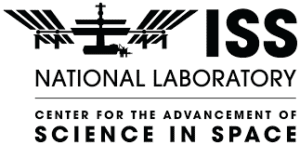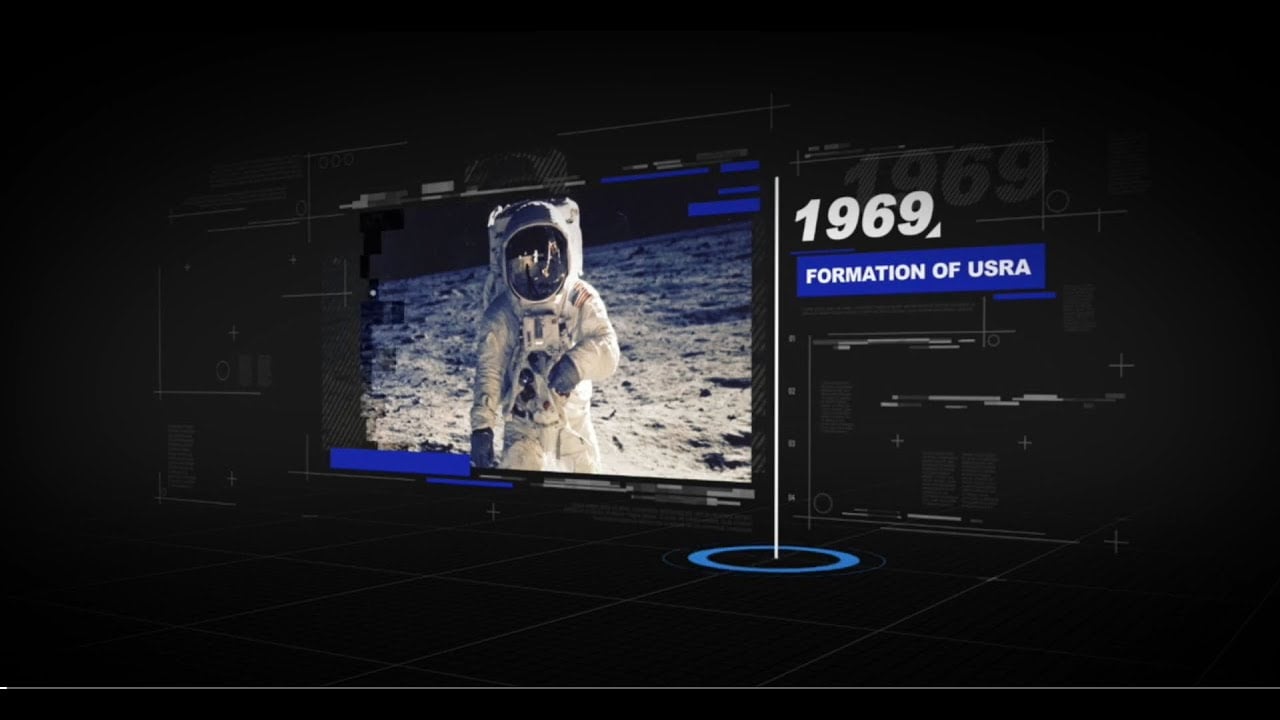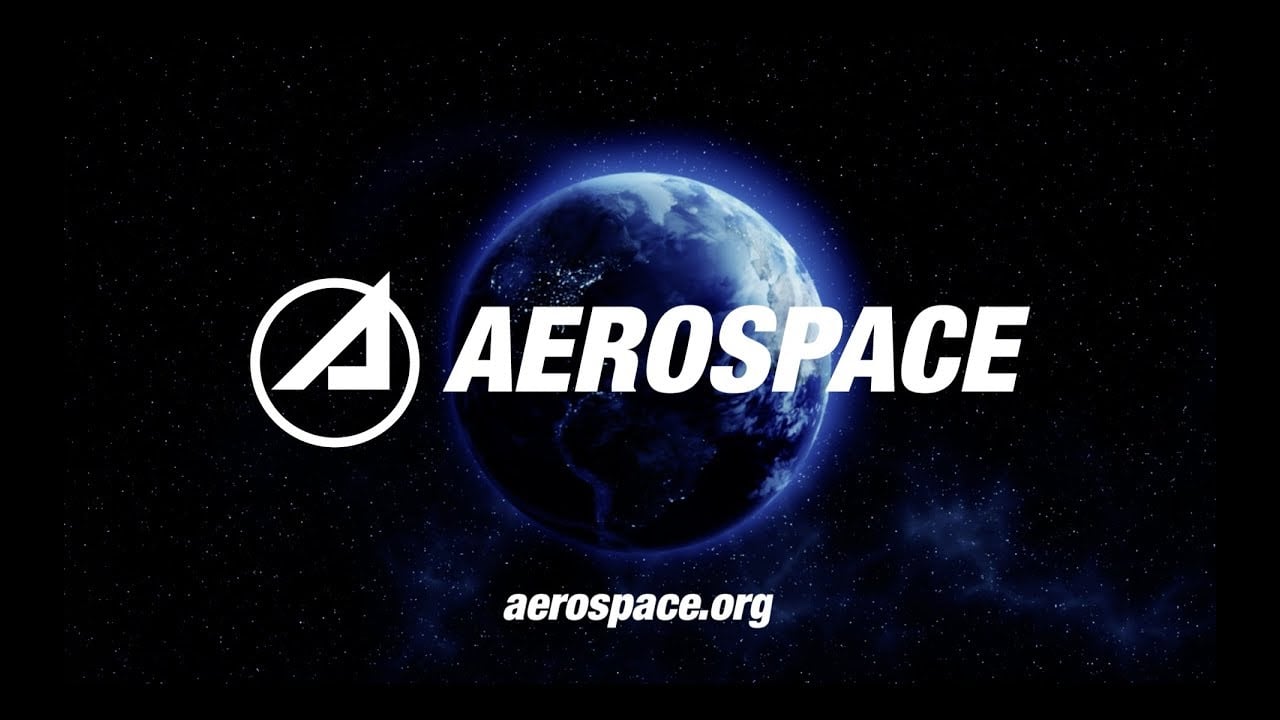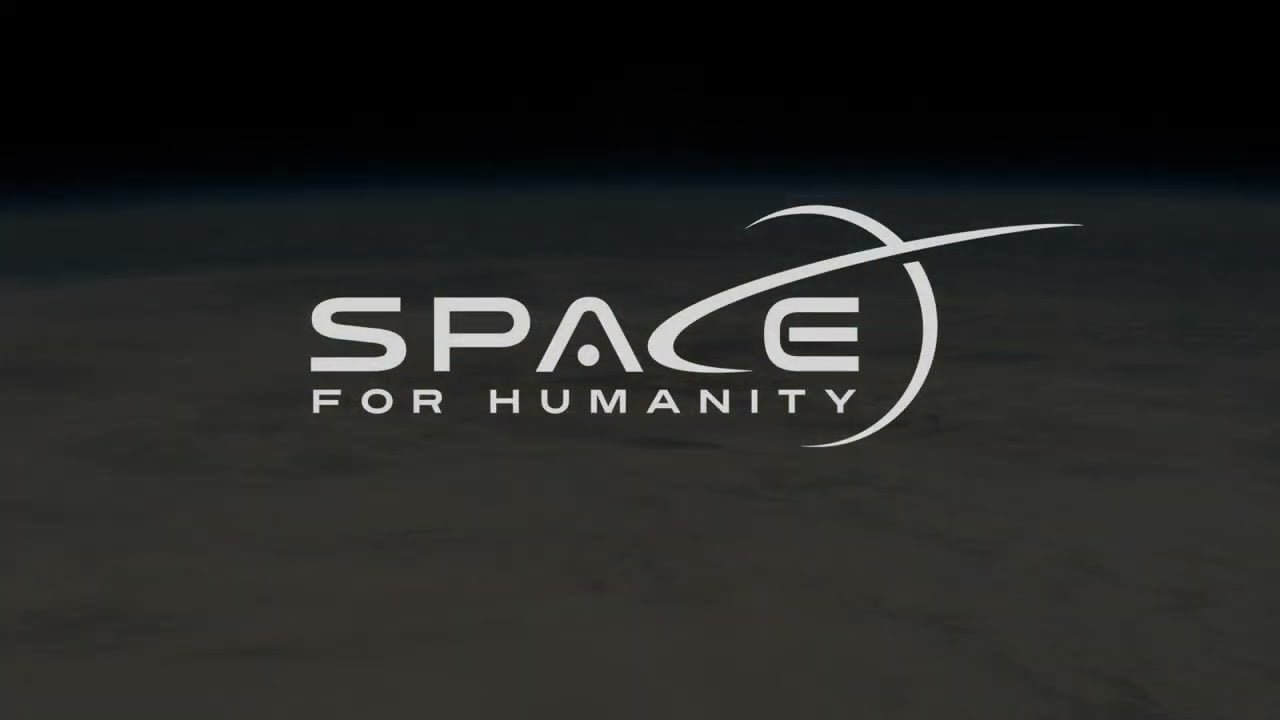9 Best Charities That Advance Space Exploration (Complete 2025 List)
Affiliate Disclosure
Hey fellow impactful ninja ?
You may have noticed that Impactful Ninja is all about providing helpful information to make a positive impact on the world and society. And that we love to link back to where we found all the information for each of our posts.
Most of these links are informational-based for you to check out their primary sources with one click.
But some of these links are so-called "affiliate links" to products that we recommend.
Why do we add these product links?
First and foremost, because we believe that they add value to you. For example, when we wrote a post about the environmental impact of long showers, we came across an EPA recommendation to use WaterSense showerheads. So we linked to where you can find them. Or, for many of our posts, we also link to our favorite books on that topic so that you can get a much more holistic overview than one single blog post could provide.
And when there is an affiliate program for these products, we sign up for it. For example, as Amazon Associates, we earn from qualifying purchases.
What do these affiliate links mean for you?
First, and most importantly, we still only recommend products that we believe add value for you.
When you buy something through one of our affiliate links, we may earn a small commission - but at no additional costs to you.
And when you buy something through a link that is not an affiliate link, we won’t receive any commission but we’ll still be happy to have helped you.
What do these affiliate links mean for us?
When we find products that we believe add value to you and the seller has an affiliate program, we sign up for it.
When you buy something through one of our affiliate links, we may earn a small commission (at no extra costs to you).
And at this point in time, all money is reinvested in sharing the most helpful content with you. This includes all operating costs for running this site and the content creation itself.
What does this mean for me personally?
You may have noticed by the way Impactful Ninja is operated that money is not the driving factor behind it. It is a passion project of mine and I love to share helpful information with you to make a positive impact on the world and society. However, it's a project in that I invest a lot of time and also quite some money.
Eventually, my dream is to one day turn this passion project into my full-time job and provide even more helpful information. But that's still a long time to go.
Stay impactful,
Outer space has fascinated humanity for millennia. And since the 20th century, we have started creating technologies to finally explore the Universe first-hand. Nowadays, the global space economy funds around $424 billion to research and delve into space within and outside our Solar System. Furthermore, scientists and leaders worldwide are now advancing space tourism for global citizens, improving our spacecraft, and counteracting the effects of outer space on the human body. As a result, charities are fighting to provide the necessary tools to help us to better understand and explore the universe around us. So we had to ask: What are the best charities that advance space exploration?
The best charities that advance space exploration are the Universities Space Research Association, the Aerospace Corporation, and The Planetary Society. Other charities, like the British Interplanetary Society and the Space Science Institute pioneer technologies for interplanetary travel.
Whether you want to support space missions in and beyond our Solar System, increase educational opportunities for space professionals and students, or fund research for better rocket technologies than those currently available, there is a charity for you. Keep reading to learn more about what the best charities that advance space exploration are all about, how they work, and what would be your best way to make a contribution.
Here’s What All the Best Charities That Advance Space Exploration Have in Common
The charities on this list were chosen based on their achievements, impact, transparency ratings, and mission.
They operate primarily in North America and the UK, innovating new ways to space travel.
Most of the charities below run research projects to create improved rocket engines and spacecraft designs that can allow more people to explore space for longer periods of time.
They also study diverse outer space environments and how they can affect humans to make space travel safer and more resilient. For this, they advocate for increased government funding for space missions. In addition, they provide space professionals with educational opportunities and global events to help them share and increase their expertise.
Yet, they all share the same goal of inspiring people about space to deepen their understanding of the Universe and life.
These Are the 9 Best Charities That Advance Space Exploration in 2025
Below are our favorite charities that advance space exploration (you can click on their link to directly jump to their section in this article):
Best Charities That Advance Space Exploration
(At the end of this article we’ll also share our six-step approach on how you can select the best charity to support.)
Universities Space Research Association: Continuing the “Space Age America”

🔎
Their transparency & ratings:
The Universities Space Research Association has a 4-star rating from Charity Navigator.
“Our mission is to advance the space- and aeronautics-related sciences exploration through innovative research, technology, and education programs.”
Universities Space Research Association
⚒️
What they do:
The Universities Space Research Association assists NASA in space sciences through programs that advance the use of nuclear energy in space to make space travel safer and more accessible outside of our solar system. They also create innovative projects in Low Gravity Sciences to improve the way spacecraft are propelled in low-gravity environments and enhance astronauts’ safety and resilience. In addition, they advance NASA’s computer sciences by creating technologies that keep astronauts communicating with Earth in long-distance missions. Also, they conduct aeronautics research to develop satellite hardware.
🚀
What they’ve achieved:
Since their founding, the Universities Space Research Association has continued to revolutionize space travel. For example, in 2023, they invested over $78 million in grants and contracts with space professionals to fund projects that advance human space exploration. In the same year, they collaborated with 1,000 space professionals from 343 organizations and academic institutions to support 655 space-related research projects. They also designed a nuclear thermal propulsion reactor for future space missions and modeled AI programs to find and validate exoplanets.
✨
Ways to contribute:
You can support the Universities Space Research Association by starting a business collaboration, applying for a job, or following their Twitter profile.
Aerospace Corporation: Celebrating the Past, Shaping the Future

🔎
Their transparency & ratings:
The Aerospace Corporation has a 3-star rating from Charity Navigator.
“In an era of dynamic change in space, Aerospace is addressing a generation of complex challenges to make space education and exploration more accessible.”
Aerospace Corporation
⚒️
What they do:
The Aerospace Corporation operates the only research and development center focused exclusively on space science. In this way, they are designing space missions from concept to practical operations to help explore planets in and outside our Solar System. For example, they develop laser technology to determine the age of planets with analysis of surface samples. They also design innovative missions to view the surface of exoplanets light-years away and assist NASA in creating high-tech astronaut suits. In addition, they conduct space research and partner with space agencies to shape the future of space travel.
🚀
What they’ve achieved:
Since their founding, the Aerospace Corporation has continued to innovate human space exploration. For instance, in 2023, they supported two National Security Space Launch missions that made an aircraft orbit around Earth. In the same year, they ran a two-week simulation where 6 experts worked and lived in an immersive, Mars-like environment to test for future space missions. In addition, they found ways to adapt practices from transportation sectors to commercial spaceflight. Also, they designed methods to aid space operations with virtual reality technology.
✨
Ways to contribute:
You can support the Aerospace Corporation on their website by following them on Twitter or joining their courses to learn more about space science.
The Planetary Society: Finding Our Place in Space

🔎
Their transparency & ratings:
The Planetary Society has a 4-star rating from Charity Navigator and holds the Platinum Seal of Transparency from GuideStar.
“We fight to understand the cosmos and our place within it by empowering the world’s citizens to advance space science and exploration.”
The Planetary Society
⚒️
What they do:
The Planetary Society builds public support for planetary science and exploration for publicly-funded space activities and policies that help initiate new space travel missions. Moreover, they financially support space science research and the development of cutting-edge space exploration technologies. They also advocate with policymakers to guide legislation and become space advocates who can help gather necessary funds for space exploration. In addition, they advance the exploration of worlds that could harbor life and innovate ways to search for life in our solar system and beyond.
🚀
What they’ve achieved:
Today, The Planetary Society is the world’s most influential space charity, having a global community of more than 2 million space advocates from 100 countries. In addition, they have launched the LightSail 2 spacecraft that took 18,000 orbits around Earth propelled only by sunlight. Moreover, they have created a drilling machine that could explore thousands of meters below the Martian polar ice caps. Also, they invented a technology that simplifies the process of collecting samples from other planets. They have also helped grow NASA’s planetary exploration budget by $1.5 billion and sent members of the Society on 20 space missions.
✨
Ways to contribute:
You can donate to The Planetary Society on their website. You can also contribute by buying their merchandise, joining their public expeditions, or becoming a space advocate.
British Interplanetary Society: From Imagination to Reality

🔎
Their transparency & ratings:
According to their financial report, the British Interplanetary Society spent 99% of their total income on charitable activities and 1% on other administrative expenditures.
“We exist to inspire people about space so that humanity builds a future beyond the Earth.”
British Interplanetary Society
⚒️
What they do:
The British Interplanetary Society designs technical and research projects to innovate further space exploration, interplanetary travel, and human spaceflight. For example, they work to create rocket engines propelled by nuclear energy to surpass the current rocket speeds available. They also research ways to create extraterrestrial human colonies in case of catastrophes here on Earth. In addition, they work on interstellar simulation for space missions beyond our solar system to help space engineers implement the necessary technology in real life. Moreover, they advocate for increased governmental funding for space exploration.
🚀
What they’ve achieved:
Since their founding, the British Interplanetary Society has continued to advance creation and knowledge in all aspects of astronautics. For example, they have made a concept design for a self-sufficient “World Ship” that could carry thousands of people and resources, thus advancing an interstellar colonization strategy. In addition, they helped 25 space scientists and engineers to design plans for a human base on Mars for a crew of 10 people to remain there for 1173 Martian days. Furthermore, they host the World Space Week UK event each year to connect space professionals and enthusiasts nationwide.
✨
Ways to contribute:
You can donate to the British Interplanetary Society on their website. You can also support them by buying their magazines and space science books.
Space Science Institute: We Are the Future of Space Science & Travel

🔎
Their transparency & ratings:
The Space Science Institute has a 4-star rating from Charity Navigator.
“Society benefits from the pursuit of new knowledge – the more we explore planetary systems and star forming regions, the more we understand our own planet.”
Space Science Institute
⚒️
What they do:
The Space Science Institute studies the atmospheres and surfaces of planets and explores the early stages of stars to further possibilities for space exploration in these regions. In addition, they make spaceflight safer and more resilient by researching extrasolar planet systems and plasma propulsion for spacecraft. They also focus on Mars research by participating in Mars Exploration Rovers and Mars Reconnaissance Orbiter missions. Furthermore, they run interactive learning courses to advance STEM education and inspire the future space scientists.
🚀
What they’ve achieved:
Today, the Space Science Institute supports 80 scientists to carry out cutting-edge research in planetary science and space physics. For example, 7 of their researchers have run experiments and published 94 papers to improve rocket launches by understanding the plasma physics of solar wind and Earth’s atmosphere. Furthermore, in 2022, they contributed to 130 spaceflight-related projects and awarded 27 grants to space researchers nationwide. In the same year, they led 10 educational projects worth $2.5 million to advance space science for youth and invested nearly $5 million in their space research initiatives.
✨
Ways to contribute:
You can donate to the Space Science Institute on their website. You can also support them by accessing their Science for the Public online learning opportunities.
Center for the Advancement of Science in Space: Leading Innovation in Space for the Benefit of Humanity

🔎
Their transparency & ratings:
The Center for the Advancement of Science in Space has a 4-star rating from Charity Navigator.
“We are advancing leadership in commercial space, pursue groundbreaking science not possible on Earth, and leverage the space station to inspire the next generation.”
Center for the Advancement of Science in Space
⚒️
What they do:
The Center for the Advancement of Science in Space uses their spacecraft orbiting Earth as an in-space Laboratory to better understand how microgravity and the extreme conditions of outer space affect humans. Furthermore, they conduct space-based research on how fluids change properties in space to improve materials and manufacturing systems for space missions. They also grow crystal molecules for drug development or electronics. In addition, they use microgravity in their spacecraft to grow cell cultures and help revolutionize regenerative medicine and healing. Also, they turn ground-based experiments into flight-ready technologies for satellites.
🚀
What they’ve achieved:
Since their founding, the Center for the Advancement of Science in Space has continued to revolutionize human spaceflight. For example, they published over 200 peer-reviewed articles based on their in-satellite research and how outer space impacts humans. Furthermore, between 2018 and 2022, they launched 390 rockets to meet with their orbiting satellite-Laboratory and spent 4,300 crew-time hours on board the satellite. Also, in 2022, they invested $12.5 million in research and development projects for space exploration and supported the Laboratory with 1,200 business investors.
✨
Ways to contribute:
You can donate to the Center for the Advancement of Science in Space on their website. In addition, you can become a Space Station Ambassador or join their interactive online activities to learn more about outer space.
American Institute of Aeronautics and Astronautics: Shaping the Future of Aerospace

🔎
Their transparency & ratings:
The American Institute of Aeronautics and Astronautics has a 4-star rating from Charity Navigator.
“We exist to help aerospace professionals, astronauts, and their organizations succeed. Our purpose is to ignite and celebrate aerospace collaboration and its importance to our way of life.”
American Institute of Aeronautics and Astronautics
⚒️
What they do:
The American Institute of Aeronautics and Astronautics organizes the aerospace industry’s leading conferences and events. There, aerospace professionals exchange information, present findings, and connect to improve space science and engineering. They also fund academic courses and workshops, as well as other online learning opportunities, to support the next generation of aerospace professionals. In addition, they publish cutting-edge aerospace books and journals to keep scientists engaged with key research and development ideas. Moreover, they advocate with global leaders to influence policies and funding that advance astronautics.
🚀
What they’ve achieved:
Since their founding, the American Institute of Aeronautics and Astronautics has become the leading publishing source of the aerospace industry, releasing over 300 books and 200,000 technical articles. They have also united a network of 30,000 space science professionals and businesses from 91 countries. Today, they award over $150,000 in scholarships and academic grants each year to serve young aerospace enthusiasts. For example, in 2020, they organized 5 international conferences to gather 16,000 space leaders from nearly 100 countries to share and discuss 6,200 space-related innovations.
✨
Ways to contribute:
You can donate to the American Institute of Aeronautics and Astronautics on their website. You can also contribute by joining as a volunteer or buying from their online store.
Space for Humanity: To Space, For Earth

🔎
Their transparency & ratings:
Space for Humanity has a 3-star rating from Charity Navigator.
“We are expanding access to space for all of humanity. We envision a world where we embrace a culture of interconnectedness as we venture into the stars.”
Space for Humanity
⚒️
What they do:
Space for Humanity runs leadership training and collaborative efforts to educate the public on the importance of space exploration. They do this by organizing the world’s first Sponsored Citizen Astronaut Program, that helps leaders from anywhere in the world apply for an opportunity to go to space and experience the Overview Effect – the cognitive shift in awareness that occurs when a human being looks down on the Earth from space. After their return, each citizen astronaut commits to join a collaborative movement to use that experience for the collective good through innovative business ideas and teaching programs.
🚀
What they’ve achieved:
Since their founding, Space for Humanity has continued to send leaders to space to help expand access for all humanity. For example, in 2022 and 2023, they chose and sent 3 citizen astronauts to space, after receiving 3,000 applications from 137 countries. These 3 people went on to found social initiatives and influence political leaders to further the access of global citizens in space explorations. In the same years, they collaborated with Virgin Galactic in the Blue Origin campaign to fund two spaceflight seats for winners to go to space.
✨
Ways to contribute:
You can donate to Space for Humanity on their website. You can also support them by volunteering, applying for a job, or becoming a brand collaborator.
Space Foundation: Connecting People. Creating Opportunities. Inspiring Generations.

🔎
Their transparency & ratings:
The Space Foundation has a 3-star rating from Charity Navigator and holds the Silver Seal of Transparency from GuideStar.
“We work to offer a gateway to education, information and collaboration for space exploration and space-inspired industries that define the global space ecosystem.”
Space Foundation
⚒️
What they do:
The Space Foundation runs the Center for Innovation and Education which offers academic support for students and professionals to inspire the next generation of space explorers. They also assist young industry leaders with career development and mentorship while improving the quality of space-related education. Moreover, their Space Symposium and Global Alliance give unique opportunities for space professionals to share cutting-edge ideas. In addition, they educate policymakers about space-related topics to ensure continuous funding for space travel projects.
🚀
What they’ve achieved:
Since their inception, the Space Foundation has continued to support space exploration leaders worldwide. For example, they have provided education to 350 space science teachers from 21 countries and 40 states to inspire young generations of space professionals. They have also created The Space Report as an authoritative guide to space activity, launches, and technology advancements. Furthermore, in 2023, their Space Symposium gathered over 10,000 space decision-makers from 40 countries to discuss 230 space-related innovations. In the same year, they invested nearly $13 million in programs for space exploration.
✨
Ways to contribute:
You can donate to the Space Foundation on their website. You can also contribute by becoming a volunteer, applying for a job, or trying workplace giving.
How Can You Select the Best Charities to Support?
The charities on the list are, we deem, the best charities that advance space exploration. However, you may have a particular charity you want to support. Let’s look at what you can do to ensure your contribution has the most significant impact.
- Check out the charity website. Charities that are worthy of your donations are transparent in their mission and their figures. Familiarize yourself with their history, mission, and values. Their website usually is the best place to start.
- Identify the charity’s mission. Without a goal, the charity is likely to fail. If the charity’s mission isn’t clear, it’s probably worth looking for a charity that does have a clear mission.
- Check if the charity has measurable goals. An effective charity has clear goals. You want to know your donation will help the charity reach its goals. But if it doesn’t have targets, it’s likely to fail or squander your gift. The charity should be able to account for its spending and supply evidence of the work they do.
- Assess the successes or goals the charity has achieved. You wouldn’t invest in a business if it kept missing its targets. In the same way, charities are like this too. If no one is assessing a charity’s progress in reaching its targets, the chances are they’re not making a substantial positive change.
- Check the charity’s financials and stats. Trustworthy organizations will publish financial statements and reports each year. Some might be exempt from having to do so, but they should be able to provide them to public members who are interested in donating.
- Locate sources who work with or benefit from the charity. Word of mouth and first-hand experience of a charity’s work lets you know the charity’s quality. If you’re able to do so, check out the charity for yourself or speak to someone familiar with it. This way, your donation will go to the right place.
How Can You Best Support These Charities?
After you’ve made your decision, it’s time for you to decide on how you’d like to help the charities you’ve chosen. Check how you can help – each charity runs specific programs that have unique aims. Find out what the aim of such programs is and whether they are right for you.
Here are a few ways you can help your chosen charity:
- Donate money. You can find donation pages on the website of most charities. Your donation can be a one-time payment, or you can set it to be deducted regularly at different intervals. You can mostly pay via credit card, but some charities also take PayPal or Bitcoin payments.
- Buy their official merchandise. The charities can also raise money by selling merchandise. So, you can support them by buying the mugs, shirts, caps, pens, pencils, and any other such items they may be selling. Ideally, you should buy as much as you can to share and spread the word about the charity’s activities.
- Engage in volunteer work. As you’ve seen from our descriptions above, some charities engage in a lot of local and grassroots programs. You can help by taking on and organizing the program in your local area.
- Help their fundraising efforts. You can spread the word about the charity in your workplace, school, church, etc., and hold creative fundraising drives on social media or offline within your small circles.
- Share their stories. Most charities have compelling stories that you can share with your audience to attract more people to the cause.
Final Thoughts
Now it is up to you to select the charity that resonates most with you. And whichever charity you end up choosing and contributing to, we are sure that they will immensely appreciate your support. Hopefully, the information within this article has made this selection process a bit easier for you to support charities dedicated to advancing space exploration – based on the causes that matter most to you.
Stay impactful,

PS: Finally, I want to leave you with a thought-provoking TED talk from Dan Pallotta, a leading philanthropic activist and fundraiser, about what is wrong with the way we think about charities – and what we can do about it:
Sources
- Statistica: Space industry worldwide – statistics & facts
- Encyclopedia Britannica: Space Tourism
- Freethink: Spending time in space can harm the human body − but scientists are working to mitigate these risks before we go to Mars
- The Universities Space Research Association: home page
- Charity Navigator: The Universities Space Research Association
- The Universities Space Research Association: space technology
- The Universities Space Research Association: Center for Space Nuclear Research
- The Universities Space Research Association: low gravity sciences
- The Universities Space Research Association: computer science and information technology
- The Universities Space Research Association: aeronautics research
- The Universities Space Research Association: 2023 annual report
- The Universities Space Research Association: doing business with us
- The Universities Space Research Association: careers
- The Universities Space Research Association: Twitter / X Profile
- The Aerospace Corporation: home page
- Charity Navigator: The Aerospace Corporation
- The Aerospace Corporation: what we do
- The Aerospace Corporation: mission success
- The Aerospace Corporation: space exploration
- The Aerospace Corporation: a powerful new laser for studying the solar system
- The Aerospace Corporation: SOLAR GRAVITY LENS LOOKS AT EXOPLANETS
- The Aerospace Corporation: BUILDING A BETTER SPACE SUIT
- The Aerospace Corporation: shape the future of space
- The Aerospace Corporation: connect the space enterprise
- The Aerospace Corporation: AEROSPACE FACILITY RAISES THE BAR FOR ELECTRIC PROPULSION TESTING
- The Aerospace Corporation: LIVING ON MARS: AEROSPACE CREW ACCELERATES HUMAN SPACE EXPLORATION KNOWLEDGE
- The Aerospace Corporation: FRAMING THE FUTURE COMMERCIAL HUMAN SPACEFLIGHT ENVIRONMENT
- The Aerospace Corporation: PROJECT PHANTOM: FURTHERING SPACE EXPLORATION WITH VIRTUAL AND AUGMENTED REALITY
- The Aerospace Corporation: Twitter / X Profile
- The Aerospace Corporation: aerospace learning opportunities
- The Planetary Society: home page
- Charity Navigator: The Planetary Society
- GuideStar: The Planetary Society
- The Planetary Society: education and public outreach
- The Planetary Society: explore worlds
- The Planetary Society: science and technology
- The Planetary Society: space policy and advocacy
- The Planetary Society: find life
- The Planetary Society: global collaboration
- The Planetary Society: LightSail, a Planetary Society solar sail spacecraft
- The Planetary Society: 2022 impact report
- The Planetary Society: planetary deep drill
- The Planetary Society: PlanetVac
- The Planetary Society: donate
- The Planetary Society: our shop
- The Planetary Society: Travel with The Planetary Society & Betchart Expeditions
- The Planetary Society: action center
- The British Interplanetary Society: home page
- The British Interplanetary Society: financial report
- The British Interplanetary Society: the society
- The British Interplanetary Society: technical projects
- The British Interplanetary Society: education and outreach
- The British Interplanetary Society: what we do
- The British Interplanetary Society: policy and advocacy
- The British Interplanetary Society: Project World Ship
- The British Interplanetary Society: project Boreas
- The British Interplanetary Society: Project Boreas – A Station for the Martian Geographic North Pole
- The British Interplanetary Society: World Space Week UK
- The British Interplanetary Society: donate
- The British Interplanetary Society: magazines
- The British Interplanetary Society: books
- The Space Science Institute: home page
- Charity Navigator: The Space Science Institute
- The Space Science Institute: our mission
- The Space Science Institute: research
- The Space Science Institute: Center for Extrasolar Planetary Systems
- The Space Science Institute: Center for Space Plasma Physics
- The Space Science Institute: National Center for Interactive Learning
- The Space Science Institute: education
- The Space Science Institute: 2022 annual report
- The Space Science Institute: donate
- The Space Science Institute: Science for the Public
- The Center for the Advancement of Science in Space: home page
- Charity Navigator: The Center for the Advancement of Science in Space
- The Center for the Advancement of Science in Space: in-space productions and applications
- The Center for the Advancement of Science in Space: AN UNPARALLELED ENVIRONMENT FOR RESEARCH AND DEVELOPMENT
- The Center for the Advancement of Science in Space: advanced manufacturing and chemicals
- The Center for the Advancement of Science in Space: crystal growth
- The Center for the Advancement of Science in Space: tissue engineering and regenerative medicine
- The Center for the Advancement of Science in Space: TECHNOLOGY DEVELOPMENT ONBOARD THE ISS NATIONAL LAB
- The Center for the Advancement of Science in Space: 2022 annual report and finances
- The Center for the Advancement of Science in Space: donate
- The Center for the Advancement of Science in Space: Space Station Ambassador program
- The Center for the Advancement of Science in Space: learn space science at home
- The American Institute of Aeronautics and Astronautics: home page
- Charity Navigator: The American Institute of Aeronautics and Astronautics
- The American Institute of Aeronautics and Astronautics: about us
- The American Institute of Aeronautics and Astronautics: events and learning
- The American Institute of Aeronautics and Astronautics: our foundation
- The American Institute of Aeronautics and Astronautics: courses and workshops
- The American Institute of Aeronautics and Astronautics: online education
- The American Institute of Aeronautics and Astronautics: publications
- The American Institute of Aeronautics and Astronautics: advocacy
- The American Institute of Aeronautics and Astronautics: strategic plan
- The American Institute of Aeronautics and Astronautics: our history
- The American Institute of Aeronautics and Astronautics: 2020 annual report
- The American Institute of Aeronautics and Astronautics: donate
- The American Institute of Aeronautics and Astronautics: volunteer opportunities
- The American Institute of Aeronautics and Astronautics: merchandise
- Space for Humanity: home page
- Charity Navigator: Space for Humanity
- Space for Humanity: our team and story
- Space for Humanity: become a citizen astronaut
- Space for Humanity: our mission
- Space for Humanity: programs
- Space for Humanity: annual report 2022
- Space for Humanity: annual report 2023
- Space for Humanity: blue origin
- Space for Humanity: donate
- Space for Humanity: volunteer
- Space for Humanity: jobs
- Space for Humanity: brand collaborator
- The Space Foundation: home page
- Charity Navigator: The Space Foundation
- GuideStar: The Space Foundation
- The Space Foundation: Center for Innovation and Education
- The Space Foundation: what we do
- The Space Foundation: new generation project
- The Space Foundation: education
- The Space Foundation: government and policy
- The Space Foundation: space symposium
- The Space Foundation: international affairs
- The Space Foundation: 2023 annual report
- The Space Foundation: the space report
- The Space Foundation: donate
- The Space Foundation: volunteer
- The Space Foundation: careers
- The Space Foundation: corporate philanthropy

























